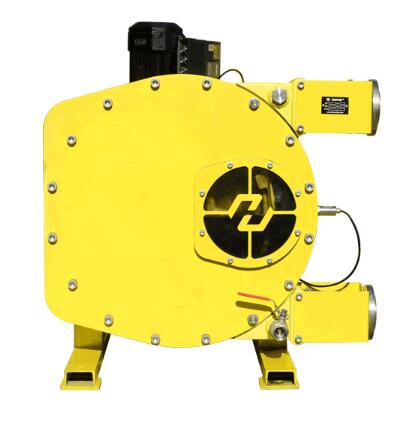Post time: Dec-15-2023
Understanding the Essence of Hose Pumps
Hose pumps have become a vital component in numerous industries, providing an efficient solution for fluid transfer. These pumps, often praised for their reliability and versatility, have gained popularity across a range of applications. In this article, we will explore the fundamentals of hose pumps, their working mechanism, applications, and the distinct advantages they offer.
How Hose Pumps Operate
At the core of hose pumps lies a simple yet ingenious design. These pumps consist of a flexible tube, known as the hose, positioned within a circular pump casing. The rotor of the pump compresses the hose at one point, initiating a positive displacement action that propels the fluid through the tube. This unique design eliminates the need for complex components like seals and valves, resulting in a sturdy and efficient pumping solution.
Applications Across Industries
1. Chemical Industry
Hose pumps play a pivotal role in the chemical industry, where the transfer of abrasive and corrosive fluids is a common requirement. The ability to handle aggressive materials without compromising the pump's components makes them indispensable in chemical processing plants.
2. Mining and Construction
In demanding environments such as mining and construction, hose pumps find applications in tasks like slurry transfer and dewatering. Their robust construction allows them to withstand harsh conditions and abrasive materials, ensuring reliable performance in challenging scenarios.
3. Water and Wastewater Treatment
The precise flow control capabilities of hose pumps make them ideal for water and wastewater treatment applications. These pumps are employed for dosing chemicals with accuracy, contributing to efficient treatment processes.
Advantages of Hose Pumps
1. Abrasion Resistance
One of the key advantages of hose pumps is their resistance to abrasion. The flexible hoses used in these pumps are designed to withstand wear and tear, contributing to an extended pump lifespan and reduced maintenance costs.
2. Gentle Fluid Handling
The gentle pumping action of hose pumps is crucial when dealing with shear-sensitive fluids. This characteristic ensures that the integrity of the material being transferred is maintained throughout the pumping process.
3. Dry Running Capability
Hose pumps can operate in a dry state without sustaining damage, making them resilient to temporary disruptions in fluid supply. This feature adds to their reliability and versatility in various applications.
Considerations for Selecting a Hose Pump
When choosing a hose pump for a specific application, several factors must be taken into account. Flow rate, pressure requirements, and the type of fluid being handled are critical considerations. Additionally, ensuring that the material of the hose is compatible with the pumped substance is essential to guarantee the pump's longevity and efficiency.
Conclusion: The Versatility of Hose Pumps
In conclusion, hose pumps offer a reliable and versatile solution for fluid transfer across diverse industries. Their uncomplicated yet effective design, coupled with the ability to handle challenging materials, positions them as valuable assets in demanding applications. When contemplating a pumping solution, it is imperative to evaluate the specific requirements of the task at hand to determine whether a hose pump is the most suitable option.
For inquiries about hose pumps or to find a reliable supplier, please do not hesitate to contact us. Our dedicated team is ready to assist you in selecting the right pump for your unique needs.


















